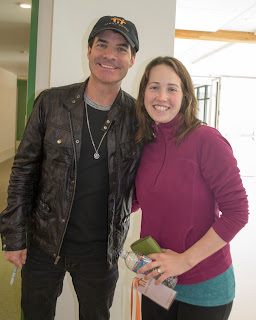Book Review: “When Your Child is Sick, A Guide to Navigating the Practical and Emotional Challenges of Caring for a Child Who is Very Ill” Written by Joanna Breyer, PhD
I had the great pleasure of meeting Joanna Breyer last month as she toured Family House. She was in town as she put it, “to see that this book of hers landed in the hands of the people who would benefit from it the most.” Ms. Breyer is a psychologist who has worked with children with cancer and their families for over 25 years at Dana-Farber Cancer Institute and Boston Children’s Hospital. This book is meant to serve as a comprehensive guide for families navigating the most uncertain and difficult circumstances of having a child diagnosed with a life-threatening illness. She informed me that she intends for the book to be used as a resource guide; as different parts of the book will be relevant to families at different times. The book is presented in three sections. Part I is on treatment, which includes everything from entering into the medical world, to coping techniques, being a parent to your other children, medications, to stem cell transplants and sibling as donors. Part II discusses survivorship. She writes about surviving Cancer, dealing with the emotional effects of a serious childhood illness, healthy living, and transitioning to adult medical care. In a very compassionate tone, Part III addresses the topic of when your child’s treatment does not work.
Ms. Breyer’s decades of experience and dedication to the families and children she has worked with throughout her career is felt on every page. It just might be one of those books that finds a home on your shelf to refer to as you manage the multiple practical and emotional complexities of this unimaginably difficult time in your life. I highly recommend it.
This book review was written by Family House Social Worker Elan Slavin, MSW, as a resource we recommend. It can be purchased here: https://smile.amazon.com/gp/product/0147517583/ref=dbs_a_def_rwt_bibl_vppi_i0




































